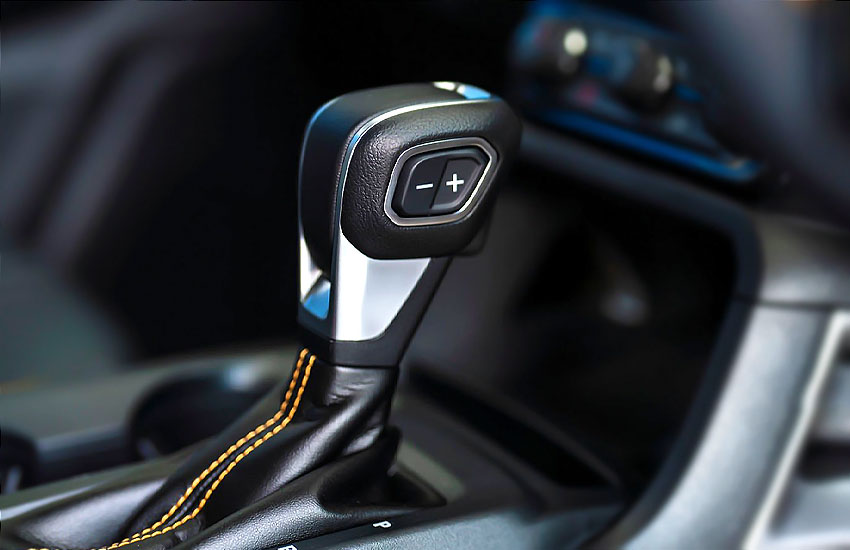As an Amazon Associate, I earn from qualifying purchases at no extra cost to you.
Unlocking the Power of the Transmission Control Unit
You might not know it, but your car has a smart gadget that helps it run smoothly: the Transmission Control Unit, or TCU. This little device plays a big role in how your car shifts gears. It’s like the brain for your car’s transmission, making sure everything works just right.
In this blog post, we'll dive into what the TCU does, how it affects your driving, and why it's so important. Whether you’re a car enthusiast or just curious, you’ll get a clear idea of how this tiny tech makes a big difference in your ride.
What is a Transmission Control Unit (TCU)?
A Transmission Control Unit (TCU) is like the brain for your car’s transmission system. It helps your car's gears shift smoothly. Think of it as a computer that controls how your car changes gears while you drive.
When you drive, the TCU receives information from different sensors in your car. These sensors tell the TCU about your car's speed, engine power, and how much you are pressing the gas pedal. The TCU uses this information to decide the best time to change gears. This helps your car run smoothly and use fuel efficiently.
The TCU makes sure that the gears shift at just the right moment. If it didn't work properly, you might feel rough or jerky shifts while driving. A good TCU helps your car feel smooth and comfortable. It also helps in preventing damage to the transmission by ensuring it's not overworked.
In short, the TCU is a key part of your car's transmission system. It helps your car shift gears correctly and keeps everything running smoothly. If you have problems with shifting gears, it might be worth checking the TCU to see if it needs attention.
How Does the TCU Affect Your Vehicle’s Performance?
The Transmission Control Unit (TCU) has a big impact on how your car performs. Here's how it affects your vehicle:
- Smooth Shifting: The TCU makes sure your car changes gears smoothly. It decides the best time to shift gears based on your driving conditions. This helps avoid jerky movements and makes your ride more comfortable.
- Fuel Efficiency: By controlling when gears shift, the TCU helps your car use fuel more efficiently. Proper gear shifts mean the engine runs at the right speed, saving fuel and improving gas mileage.
- Engine Power: The TCU helps manage engine power by choosing the right gear. This means your car can accelerate quickly when needed, like when you're merging onto a highway, and also help you drive more steadily in traffic.
- Transmission Longevity: Proper gear shifts reduce wear and tear on the transmission. The TCU prevents overworking the transmission, which can help it last longer and avoid costly repairs.
- Driving Experience: Overall, the TCU enhances your driving experience by making your car easier to handle. It adjusts to different driving conditions and your driving style, making your ride smoother and more enjoyable.
In summary, the TCU plays a crucial role in how your car performs, affecting everything from gear shifts to fuel efficiency and overall driving comfort.

Common Issues with the TCU and How to Fix Them
1. Shifting Problems
If your car has trouble shifting gears smoothly, it means the gears are not changing as they should. This can feel like the car is struggling or hesitating when you drive. One common reason for this issue is loose or damaged connections to the TCU.
The TCU controls how the transmission shifts gears, so if the connections are not secure, the shifting can become erratic. To fix this, first, make sure all the TCU connections are tight and in good condition. If you find any loose wires or damaged connectors, you may need to tighten or replace them.
Another thing to check is the transmission fluid. The transmission fluid helps the gears shift smoothly and keeps everything lubricated. If the fluid level is low or if it's dirty, it can cause shifting problems. You should check the fluid level using the dipstick (a long, thin stick) usually found near the engine. If the fluid is low, add the correct type of fluid as recommended by your car's manual. If the fluid is dirty or smells burnt, you should have it replaced.
If the shifting issues continue even after checking the connections and fluid, the TCU might need to be reset. Sometimes, a simple reset can fix the problem. If a reset doesn't work, the TCU may need to be replaced, which can be done by a professional mechanic. They can diagnose the problem more thoroughly and ensure your transmission works properly.
2. Transmission Slips
When you notice that your car's transmission feels like it's slipping, it means the car is not staying in gear as it should. This can cause the engine to rev up, but the car doesn't move as expected. One common reason for this issue is low or dirty transmission fluid. Transmission fluid is essential for smooth gear changes and keeping the transmission lubricated.
To fix this problem, start by checking the transmission fluid level. You can usually find the dipstick for the transmission fluid near the engine. Pull out the dipstick, wipe it clean, then insert it back and pull it out again to check the fluid level. If the level is low, you should add the correct type of transmission fluid. Make sure to use the type recommended in your car's manual.
If the fluid looks dirty or has a burnt smell, it means it's time to replace it. Changing the transmission fluid and filter can often solve slipping issues. However, if the problem continues, it could mean the TCU itself is not working properly. In this case, the TCU might need to be recalibrated or replaced. A professional mechanic can perform these repairs and ensure your transmission operates smoothly.
3. Warning Lights
When you see a warning light on your dashboard, like the check transmission or check engine light, it means there's a problem with your car's transmission system. These lights can be caused by various issues, including problems with the TCU.
To figure out what's wrong, you can use a tool called an OBD-II scanner. This scanner reads error codes from your car's computer, which can help identify the issue. You can either buy an OBD-II scanner or have a mechanic use one to check your car. The scanner will give you a code that corresponds to the problem.
Common issues that could trigger these lights include a faulty TCU, damaged sensors, or low transmission fluid. Depending on the error code, you might need to repair or replace specific parts. For example, if the code indicates a problem with a sensor, you may need to replace the sensor. If it points to the TCU, it might need to be repaired or replaced. Always follow the advice of a professional mechanic to address the issue correctly and ensure your car runs smoothly.
4. Unusual Noises
If your car's transmission makes strange noises, like grinding or whining, when shifting gears, it could be a sign of a problem. These noises often mean that something is wrong inside the transmission. One common cause of these noises is low or dirty transmission fluid.
To start fixing this, check the transmission fluid level. You can use the dipstick to see if the fluid is at the correct level. If it's low, add the right type of fluid. If the fluid looks dirty or smells burnt, it's time to replace it. Dirty fluid can cause internal parts of the transmission to wear out faster, leading to noise.
If changing the fluid doesn't stop the noises, the problem might be more serious. Internal parts of the transmission could be damaged or worn out. In this case, it's best to take your car to a professional mechanic. They can inspect the transmission and determine if any parts need repair or replacement. Taking care of these issues early can help prevent more serious damage and keep your transmission running smoothly.
5. Rough Shifting
If you feel rough or jerky movements when your car shifts gears, it can be uncomfortable and might indicate a problem with the TCU or transmission. Rough shifting means the gears are not changing smoothly, which can feel like the car is jerking or lurching.
Start by checking the connections to the TCU. Make sure they are secure and not damaged. Loose or damaged connections can cause problems with how the TCU controls the transmission. If you find any issues, tighten or replace the connections as needed.
Also, check the transmission fluid level and condition. Low or dirty fluid can lead to rough shifting. Use the dipstick to check the fluid level. If it's low, add more fluid. If it's dirty or burnt, replace it with fresh fluid and a new filter.
If the rough shifting continues after checking these things, the TCU might need recalibration or replacement. A professional mechanic can help with recalibration or diagnose if the TCU needs to be replaced. They can also check for other potential issues with the transmission that might be causing the rough shifting.
If you're not comfortable performing these checks or fixes yourself, it's a good idea to take your car to a professional mechanic. They can provide a more detailed diagnosis and repair.
Upgrading or Replacing Your TCU: What You Need to Know
Upgrading or replacing your Transmission Control Unit (TCU) can be a significant step in improving your vehicle's performance. Here's what you need to know:
When to Upgrade or Replace the TCU
There are several signs that you might need to upgrade or replace your TCU:
- Shifting Issues: If you notice that your car is having trouble shifting gears smoothly, this could be a sign of a faulty TCU. The TCU controls gear changes, so issues with it can lead to rough or erratic shifting.
- Warning Lights: If your dashboard shows a check transmission or check engine light, it might be related to the TCU. An OBD-II scanner can help diagnose the issue by reading error codes.
- Transmission Slips: If your transmission feels like it's slipping or not staying in gear, this could be due to a malfunctioning TCU.
- Unusual Noises: Strange noises during shifting can indicate internal problems, including issues with the TCU.
Upgrading vs. Replacing the TCU
- Upgrading: Upgrading the TCU usually means installing a newer version that offers better performance or additional features. Upgrades might be available for specific models and can enhance shifting performance, fuel efficiency, or driving dynamics. This is often done if you want to improve your car's performance or if your TCU is outdated.
- Replacing: Replacing the TCU involves removing the old unit and installing a new one. This is necessary if the TCU is damaged beyond repair or if troubleshooting indicates that a replacement is the best solution. Replacement is usually done when the TCU has failed and cannot be fixed through recalibration or repair.
How to Upgrade or Replace the TCU
- Diagnosis: Before making any changes, have your TCU diagnosed by a professional mechanic. They will check if the TCU is the source of your problems and determine whether an upgrade or replacement is needed.
- Choosing a TCU: If upgrading or replacing, ensure you choose the correct TCU for your car's make, model, and year. OEM (Original Equipment Manufacturer) parts are usually recommended for best results.
- Installation: Have the new or upgraded TCU installed by a qualified mechanic. Proper installation is crucial for ensuring the TCU works correctly with your car's transmission system.
- Testing: After installation, the new TCU should be tested to ensure it's working properly. This may involve driving the car to check for improved shifting and performance.
Cost and Professional Help
Upgrading or replacing a TCU can be costly. The price depends on the type of TCU, your car's make and model, and labor costs. It's important to get quotes from different repair shops and understand the costs involved.
In summary, upgrading or replacing your TCU can significantly impact your car's performance. Proper diagnosis, choosing the right TCU, and professional installation are key to ensuring your transmission system works efficiently. If you notice any signs of TCU problems, it's best to consult a mechanic to determine the best course of action.
I hope this guide helps you understand the Transmission Control Unit better. By learning how it works and how to troubleshoot it, you can keep your car running smoothly. The Transmission Control Unit is important for making sure your car shifts gears correctly. If you have issues, remember to check this unit as part of your car care routine.











